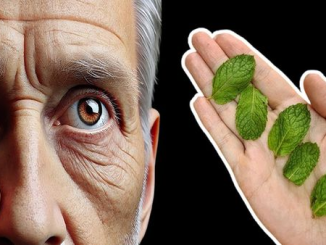


Beetroot juice is a popular choice for many people due to its numerous health benefits, such as improving blood flow, lowering blood pressure, and boosting exercise performance. However, it’s important to be aware that like any food or supplement, beetroot juice can have side effects, especially when consumed excessively. In this article, we will discuss seven side effects of beetroot juice that you should be mindful of if you fall within the age range of 45-65 years old.
One peculiar side effect of consuming beets or beetroot juice is a harmless condition called beeturia. This occurs when the natural pigments in beets, known as betalains, cause your urine to turn reddish in color. Don’t worry, it’s not a cause for concern! Beeturia is more common in individuals with low stomach acid.
Beetroot juice is rich in oxalates, compounds that can contribute to the formation of kidney stones in susceptible individuals. If you have a history of kidney stones, it’s advisable to limit or avoid consuming beetroot juice to reduce the risk.
For some people, the high levels of betaine in beetroot juice can cause gastrointestinal issues like nausea, stomach upset, and diarrhea. To minimize the chances of experiencing these side effects, it’s best to consume the juice with food rather than on an empty stomach.
A well-known benefit of beetroot juice is its ability to lower blood pressure. However, for individuals who are already on blood pressure medication, consuming beetroot juice can cause blood pressure to dip too low. If you fall into this category, it’s important to monitor your blood pressure levels closely and consult with a healthcare provider if needed.
Consuming beetroot juice regularly can potentially increase the risk of developing gout, a type of arthritis characterized by severe joint pain and inflammation. This is because the oxalates present in beetroot juice can contribute to the buildup of uric acid in the blood. If you have a history of gout or are prone to it, it may be wise to limit your intake of beetroot juice.
Similar to beeturia affecting the color of urine, beetroot juice can also change the color of your stools, giving them a reddish hue. Although this side effect is generally harmless, it can be surprising if you’re not expecting it.
While rare, some individuals may experience an allergic reaction to beetroot juice. Allergic symptoms can range from hives and itching to more severe cases of anaphylaxis. If you notice any signs of an allergic reaction after consuming beetroot juice, it is crucial to seek immediate medical attention.
To make your beetroot juice consumption safer and more enjoyable, here are a few tips:
- Moderation: Start by consuming small amounts of beetroot juice to gauge how your body reacts to it. Gradually increase your intake if no adverse effects are noticed.
- Mix with Other Juices: Dilute beetroot juice with other juices like apple or carrot to lessen the intensity of the beetroot flavor and reduce the risk of side effects.
- Medical Consultation: If you have any underlying health conditions or are taking medication that may interact with beetroot juice, it’s advisable to consult with a healthcare provider before incorporating it into your diet.
By being aware of these potential side effects, you can safely and healthily enjoy beetroot juice while reaping its many benefits. So go ahead, sip on that vibrant red goodness and take your wellness journey to the next level!


